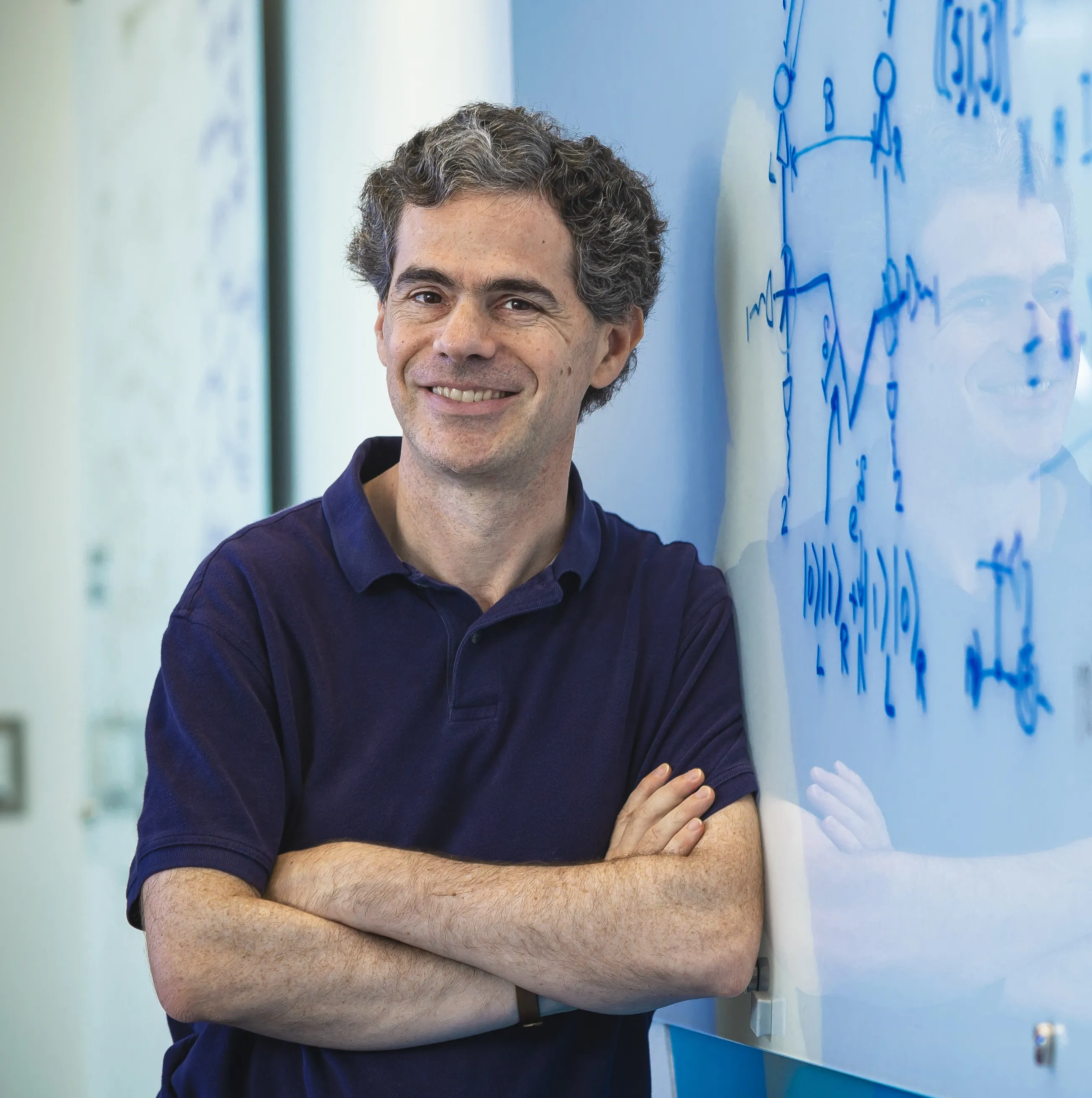
A noted expert in quantum error correction has been tasked with helping lead the Joint Center for Quantum Information and Computer Science (QuICS) at the University of Maryland.
Daniel Gottesman, the Brin Family Endowed Professor in Theoretical Computer Science, was recently named co-director of QuICS for a five-year term, effective July 1, 2024. He joins fellow co-director Yi-Kai Liu, a scientist at the National Institute for Standards and Technology (NIST), in guiding numerous research, scholarship and outreach activities at QuICS.
Launched in early 2015, QuICS is a partnership between UMD and NIST that is focused on quantum computer science and quantum information theory. The center is currently home to 21 faculty fellows, 20 postdoctoral researchers, and about 80 graduate students.
Gottesman says he is honored to help lead QuICS, noting the center’s rapid growth in the past decade and its continued success in advancing theoretical and experimental research involving quantum algorithms, quantum cryptography, quantum error correction, and more.
“The strength of QuICS is in its people—faculty, postdocs, students, staff and visitors,” Gottesman says. “COVID didn't change that, but it did fracture our sense of community, and we've been slowly rebuilding those connections ever since. It's great to see people chatting again in the QuICS Lounge during the teas and other events, and I hope to continue to strengthen those ties to make QuICS an even more vibrant place to work.”
Gottesman acknowledges the solid foundation already in place as he starts his new role, due in part to his predecessor, Professor of Computer Science and QuICS Fellow Andrew Childs, who co-led QuICS for almost a decade.
That foundation includes a major expansion of the QuICS physical space, strengthening ties between QuICS and other research groups within the University of Maryland quantum ecosystem, and a strong commitment to increasing diversity within the center.
“We will continue these existing initiatives, and I look forward to working with the QuICS community to find other ways to advance the goals of the center,” Gottesman says.
Gottesman’s own research focuses on quantum computation and quantum information. He works in the sub-fields of quantum error correction, fault-tolerant quantum computation, quantum cryptography and quantum complexity. He is best known for developing the stabilizer code formalism for creating and describing a large class of quantum codes and for work on performing quantum gates using quantum teleportation.
Gottesman has been at the University of Maryland since 2021. Prior to coming to UMD, he was at the Perimeter Institute in Waterloo, Canada.
He received his bachelor’s degree in physics from Harvard University in 1992 and his Ph.D. in physics from Caltech in 1997. After postdoctoral positions at Los Alamos National Laboratory and Microsoft Research, he served in the University of California, Berkeley computer science department as a long-term Clay Mathematics Institute Prize Fellow.
Daniel Gottesman, the Brin Family Endowed Professor in Theoretical Computer Science, was recently named co-director of QuICS for a five-year term, effective July 1, 2024. He joins fellow co-director Yi-Kai Liu, a scientist at the National Institute for Standards and Technology (NIST), in guiding numerous research, scholarship and outreach activities at QuICS.
Launched in early 2015, QuICS is a partnership between UMD and NIST that is focused on quantum computer science and quantum information theory. The center is currently home to 21 faculty fellows, 20 postdoctoral researchers, and about 80 graduate students.
Gottesman says he is honored to help lead QuICS, noting the center’s rapid growth in the past decade and its continued success in advancing theoretical and experimental research involving quantum algorithms, quantum cryptography, quantum error correction, and more.
“The strength of QuICS is in its people—faculty, postdocs, students, staff and visitors,” Gottesman says. “COVID didn't change that, but it did fracture our sense of community, and we've been slowly rebuilding those connections ever since. It's great to see people chatting again in the QuICS Lounge during the teas and other events, and I hope to continue to strengthen those ties to make QuICS an even more vibrant place to work.”
Gottesman acknowledges the solid foundation already in place as he starts his new role, due in part to his predecessor, Professor of Computer Science and QuICS Fellow Andrew Childs, who co-led QuICS for almost a decade.
That foundation includes a major expansion of the QuICS physical space, strengthening ties between QuICS and other research groups within the University of Maryland quantum ecosystem, and a strong commitment to increasing diversity within the center.
“We will continue these existing initiatives, and I look forward to working with the QuICS community to find other ways to advance the goals of the center,” Gottesman says.
Gottesman’s own research focuses on quantum computation and quantum information. He works in the sub-fields of quantum error correction, fault-tolerant quantum computation, quantum cryptography and quantum complexity. He is best known for developing the stabilizer code formalism for creating and describing a large class of quantum codes and for work on performing quantum gates using quantum teleportation.
Gottesman has been at the University of Maryland since 2021. Prior to coming to UMD, he was at the Perimeter Institute in Waterloo, Canada.
He received his bachelor’s degree in physics from Harvard University in 1992 and his Ph.D. in physics from Caltech in 1997. After postdoctoral positions at Los Alamos National Laboratory and Microsoft Research, he served in the University of California, Berkeley computer science department as a long-term Clay Mathematics Institute Prize Fellow.